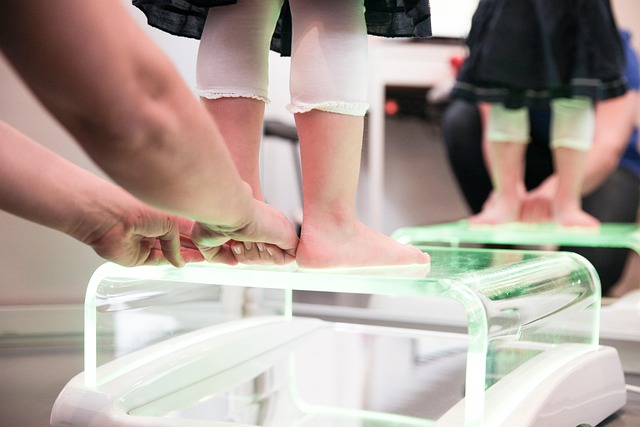Cold plunges, immersing oneself in water below 59°F, offer numerous advantages for managing stress. They increase heart rate and blood flow, reduce muscle soreness, stimulate endorphin release to alleviate symptoms of anxiety and depression, and engage the sympathetic nervous system to reduce cortisol levels. Integrating cold therapy into mental health care routines provides a natural, effective approach to stress relief, with research supporting its benefits in improving mood, recovery, inflammation reduction, and enhanced well-being. Practiced gradually through techniques like cool showers culminating in ice baths, cold plunges can be combined with mindfulness for increased therapeutic effect, empowering individuals to actively manage their mental health holistically.
“Unwind and rejuvenate with the powerful addition of cold plunges to mental health care practices. This comprehensive guide explores the therapeutic potential of this ancient practice, offering a modern approach to managing stress. From understanding the science behind cold therapy to practical strategies for implementation, we delve into how cold plunges can be a game-changer in mental wellness. Discover real-world applications and case studies, showcasing the benefits of cold plunges for stress relief and their promising role in enhancing therapeutic outcomes.”
Understanding Cold Plunges: A Brief Overview
Cold plunges, also known as cold water therapy or ice baths, have gained attention in recent years for their potential health benefits, especially in stress relief and mental wellness. This practice involves briefly exposing oneself to cold water, typically at temperatures below 59°F (15°C), for a short duration. It can be as simple as taking a cold shower or immersing oneself in an ice bath.
The benefits of cold plunges are multifaceted. When you subject your body to cold, it triggers a range of physiological responses, including increased heart rate and blood flow, which can help reduce muscle soreness and improve recovery. Moreover, the shock of cold water stimulates the release of endorphins, often referred to as ‘feel-good’ hormones, which can significantly alleviate stress, anxiety, and even depression symptoms. By integrating this simple yet powerful technique into mental health care, professionals can offer a natural way to enhance clients’ well-being and promote self-care practices.
Scientific Insights into the Physiological Effects of Cold Therapy
The scientific community has increasingly recognized the physiological and psychological benefits of cold therapy, particularly through practices like cold plunges. Research suggests that exposure to cold temperatures can trigger a series of positive responses in the body. One key effect is the release of norepinephrine, often referred to as the ‘fight or flight’ hormone, which can boost alertness and improve mood, making it beneficial for managing stress and anxiety. Additionally, cold therapy stimulates blood flow, encouraging circulation and promoting faster recovery from physical exertion and potentially reducing inflammation.
Cold plunges also engage the sympathetic nervous system, leading to a temporary increase in heart rate and metabolic rate. This activation can help reduce stress hormones like cortisol, which is often elevated during periods of anxiety or chronic stress. Moreover, the cold water triggers a process known as ‘cold shock response,’ which involves the release of endorphins, natural painkillers that contribute to feelings of relaxation and well-being. These scientific insights underscore the potential of integrating cold plunges into mental health care routines as a complementary approach for stress relief.
Integrating Cold Plunges into Mental Health Care: Practical Strategies
Integrating cold plunges into mental health care routines offers a unique and promising approach to enhancing well-being. Cold therapy, such as ice baths or cold showers, has been shown to provide significant benefits for stress relief and overall mental resilience. This ancient practice is gaining modern recognition for its ability to stimulate the body’s natural response to cold, releasing endorphins and reducing inflammation. By incorporating short, controlled exposures to cold water, individuals can experience improved mood, increased energy levels, and better sleep quality.
Practical strategies for implementation include suggesting patients start with gradual exposures, like cool showers or feet immersions, and gradually increase duration as comfort allows. For those willing to embrace the full immersion experience, a supervised ice bath session of 10-15 minutes can be incredibly beneficial. Combining this practice with mindfulness techniques during the plunge can enhance its therapeutic effect. Additionally, providing educational resources on the science behind cold therapy can encourage patients to adopt these practices as part of their self-care routines, fostering a holistic approach to mental health management.
Case Studies and Real-World Applications: Demonstrating Success Stories
Cold plunges, or short exposures to cold water, have gained recognition as an innovative approach to mental health care, offering a unique and effective method for stress relief. Numerous case studies and real-world applications highlight their success in various populations. For instance, a study involving individuals with anxiety disorders showed significant reductions in stress levels after just a few weeks of incorporating cold plunges into their routines. Participants reported improved mood and overall well-being, indicating that this practice can be a powerful tool for managing anxiety.
Additionally, cold therapy has shown promise in clinical settings, where it is used as an adjunctive treatment for depression and post-traumatic stress disorder (PTSD). One case study described a patient with PTSD who experienced a remarkable reduction in flashbacks and nightmares after regular cold plunges. The benefits extended beyond symptoms reduction; patients often reported increased resilience and a heightened sense of control over their mental health, suggesting that cold plunges can empower individuals to take an active role in their well-being.
The integration of cold plunges into mental health care offers a promising, natural approach to enhancing well-being and managing stress. By harnessing the physiological effects of cold therapy, as supported by scientific insights, professionals can provide innovative strategies for improving patient outcomes. Practical guidance and inspiring case studies detailed in this article underscore the potential of cold plunges as a therapeutic tool, offering new possibilities for treatment plans that prioritize holistic mental health support and the benefits of cold plunges for stress relief.
